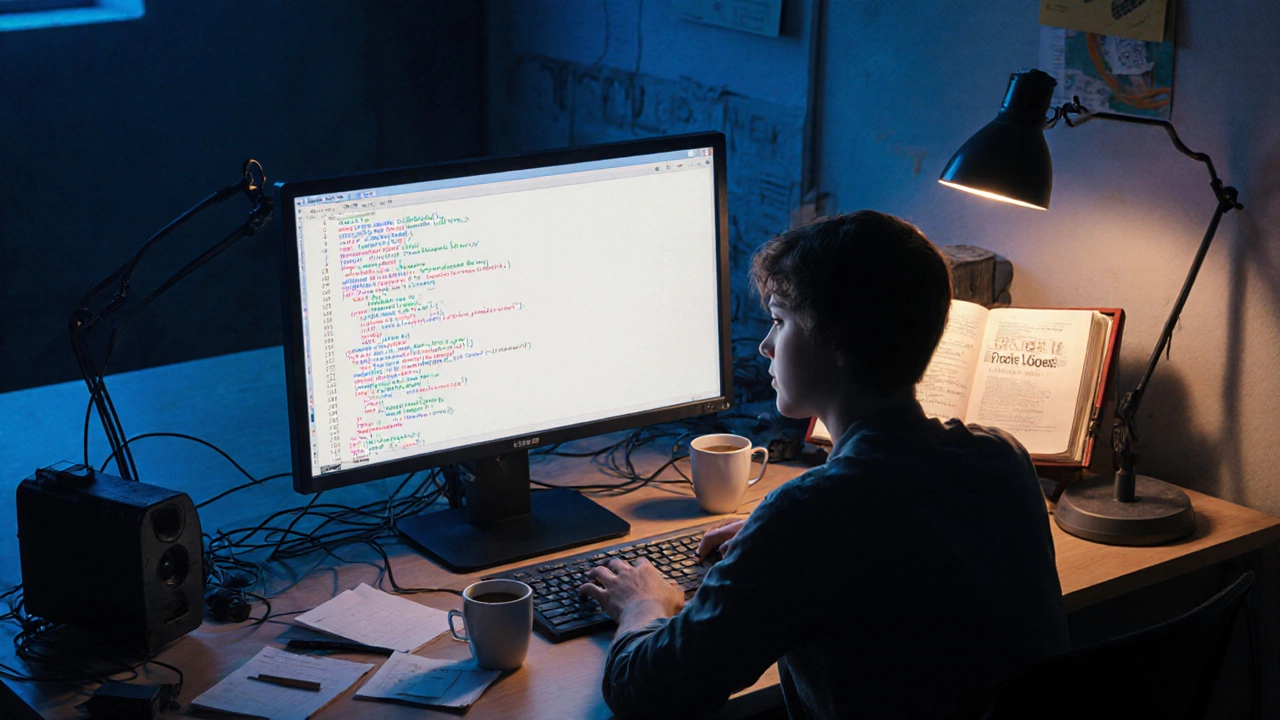Learning to Code: Simple Steps to Start Your Programming Journey
Ever wondered how to turn a bright idea into a working app? The answer is learning to code, and you don’t need a computer science degree to begin. In the next few minutes you’ll see exactly what to study, where to practice, and how to keep the momentum going. Grab a notebook, a coffee, and let’s get started.
Why Learning to Code Matters
Code is the language behind every phone, website, and smart gadget you use. Knowing it opens doors to higher‑pay jobs, freelance gigs, and the ability to automate boring tasks. Even if you’re not aiming for a tech career, basic coding lets you solve problems faster and understand the digital world with confidence.
Pick a Learning Path That Fits You
First, decide what you want to build. Want a simple website? HTML, CSS, and a splash of JavaScript are enough. Curious about data analysis? Python’s easy syntax and powerful libraries are a great start. For mobile apps, try Java (Android) or Swift (iOS). Choose one language, stick with it for a few weeks, and avoid bouncing around.
Next, find a platform that matches your style. Interactive sites like Codecademy and freeCodeCamp let you write code right in the browser, giving instant feedback. If you prefer video lessons, YouTube channels such as "Programming with Mosh" break concepts into bite‑size clips. For a more structured approach, enroll in an eLearning course on platforms like Coursera or Udemy, where you get a syllabus, quizzes, and a community.
Don’t skip the basics. Spend at least 30 minutes a day on core concepts: variables, loops, conditionals, and functions. Write tiny programs – a calculator, a to‑do list, or a simple game. These projects reinforce what you learn and keep you motivated. When you hit a roadblock, search the error message on Stack Overflow; there’s almost always someone who’s solved it before.
Understanding the different types of code can also help. You’ll encounter programming code (the full logic of an app), scripting code (automating tasks), and markup code like HTML (structuring web pages). Knowing the role each plays prevents confusion when you read tutorials or work on real projects.
Finally, track your progress. Create a GitHub account and push every project you finish. This not only builds a portfolio but also teaches you version control – a skill every developer needs. Review your older code after a month; you’ll be surprised at how much you’ve improved.
Learning to code is a marathon, not a sprint. Celebrate small wins, stay curious, and keep building. With the right resources and a steady routine, you’ll turn that curiosity into real, usable skills – fast.
What Is the Hardest Thing About Coding?
The hardest part of coding isn't learning syntax-it's learning how to think like a machine, debug relentlessly, and keep going when things break. This is what separates beginners from those who actually ship software.
read moreWhat's the Hardest Coding Language? A Real-World Look
Ever wondered which programming language is the toughest to master? This article cuts through the noise and looks at what really makes some languages harder than others. Get the dirt on tricky syntax, mind-bending concepts, and stories from folks who’ve tangled with the gnarliest code out there. If you’re thinking of picking a language to learn, you’ll want these facts and tips before you start. Grab some honest advice on what to expect and how to survive the ride, whether you’re a newbie or looking for your next challenge.
read more
